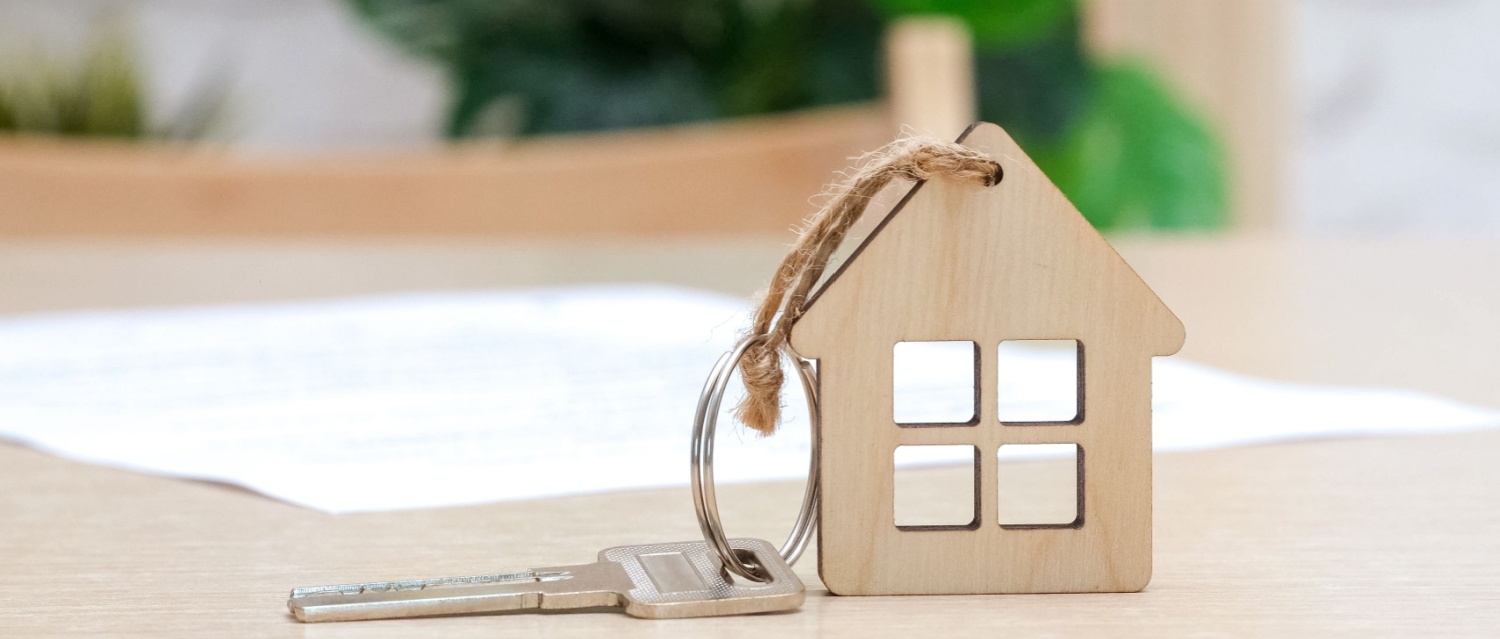The prospect of buying a property in France can be exciting and life-changing. This step-by-step guide explains everything you need to know about the process, whether you’re buying a resale home or a new-build property.
The buying process is relatively straightforward for international buyers, but there are important differences depending on the type of property you’re purchasing. Understanding each step will help you move forward with confidence.
Contents
- Step 1: Initial research and planning
- Step 2: The property search
- Step 3: Viewing trip
- Step 4: Making an offer
- Step 5: Initial contracts
- Buying new or off-plan properties
- Step 6: Mortgages
- Step 7: Final contract and completion

The more you can narrow down your needs the easier the search will be
Step 1: Initial research and planning
Before anything else, take the time to think about why you want to buy in France. Are you seeking a holiday home, a retirement retreat, a full-time relocation, or an investment opportunity? Your goals will shape where you buy and the type of property you should consider.
Once you’ve defined your purpose, start exploring regions that suit your lifestyle. For example:
- Provence for sunshine and wine country
- The Alps for winter sports and mountain living
- Nouvelle-Aquitaine for beach lovers and surfers
- Occitanie for rustic charm and excellent value
Next, determine your budget, including additional costs like notaire fees (usually around 7-8% of the purchase price), currency exchange, and renovation (if applicable).
It’s also wise to begin assembling your team of professionals at this stage. This may include:
- A bilingual estate agent familiar with international buyers
- An independent property lawyer who works solely in your interests
- A currency specialist to help you plan for international transfers and rate fluctuations
- A mortgage broker (if you plan to finance part of the purchase)
- A visa expert or tax advisor, if your move will affect your residency or fiscal status
Having trusted professionals in place early will ensure a smoother experience once you begin searching for a property.
We can help you with this, as we partner with a range of overseas property experts.

Using your research, you can now start picking out houses for a viewing trip
Step 2: The property search
With your goals, region and budget in mind, it’s time to start your property search in earnest. If you’ve already engaged an estate agent, they may begin sending you curated listings that meet your criteria. However, when finding a property in France, it’s also beneficial to search independently using online property portals to get a broader sense of what’s available.
Recommended portals include:
- Your Overseas Home – offering thousands of vetted listings across France
- Rightmove Overseas
- Zoopla Overseas
When browsing listings, use filters to narrow down by location, price range, number of bedrooms, and key features such as garden, pool, or sea view. Be aware that regional names may appear in French (e.g. Normandie rather than Normandy), so it’s a good idea to try multiple spellings.
Start bookmarking favourites and tracking trends in asking prices. This will help you quickly identify good value when it arises. It’s also smart to research local infrastructure, healthcare, expat communities, and accessibility – especially if you plan to live there full time or rent out the property.
Once you’ve shortlisted a few properties, you’re ready to arrange a viewing trip.

A viewing trip is different to a holiday, but that’s not to say you can’t enjoy yourself
Step 3: Viewing trip
A viewing trip is a crucial part of the buying process, giving you the opportunity to experience the property and the surrounding area first-hand. While online research and virtual tours are useful, there’s no substitute for being on the ground. Most buyers schedule their trip around four months before they intend to complete on a property.
A typical viewing trip lasts between four and seven days. During that time, plan to see multiple properties and allow plenty of space in your itinerary to explore the local area – walk the neighbourhood, visit local markets, try cafés and restaurants, and assess public transport if that’s relevant to your lifestyle. If you’re buying with a partner or family, involve them in this part of the journey to make sure the area works for everyone.
To get the most from your trip:
- Coordinate with your estate agent well in advance. Give them your criteria so they can prepare viewings and useful background material on each property.
- Try to view properties on different days to avoid fatigue. Seeing too many homes in a short window can lead to confusion or rushed decisions.
- Keep detailed notes on each viewing – what you liked, what concerned you, and questions that need answering.
- Take photos or videos (with permission), and measure key features if necessary. This helps later when comparing options or reviewing with a partner back home.
Most importantly, be honest with yourself. Does the property feel right? Can you see yourself living there or renting it out successfully? A successful viewing trip will narrow your options – and often lead directly to an offer.
For more tips, download our free Viewing Trip guide.

Once you are ready to make an offer, move quickly. You may not be the only buyer
Step 4: Making an offer
When you’ve found the right property, you can make an offer via your estate agent. The agent will present your offer to the seller, typically in writing, along with any conditions you want to include (such as subject to mortgage approval).
It’s common to offer slightly below the asking price, especially if the property has been on the market for a while. That said, in fast-moving markets or for highly desirable homes, you may need to offer the full price – or even exceed it – to secure the property. Your agent will be able to advise on market norms and the seller’s expectations.
If the seller accepts your offer, you’ll move into the next phase of the buying process: preparing the initial contract. This usually involves instructing the notaire to begin drafting the Compromis de Vente (or Promesse de Vente, depending on the case). At this stage, it’s a good idea to gather your supporting documents, such as ID, proof of funds, or mortgage agreement in principle.
Although no money changes hands with the offer itself, once the initial contract is signed, you’ll be asked to pay a deposit – typically 5% to 10% of the purchase price – into the notaire’s holding account.
Before you commit to the next phase, it’s also essential to understand the full cost of your purchase. This includes notaire fees (around 7–8%), agency fees (if not included in the asking price), potential renovation costs, and currency exchange charges. Working with a currency specialist can help protect your budget from rate fluctuations and ensure funds arrive on time for each transaction milestone.

There are many protections in place for buyers when making an offer on a home
Step 5: Initial contracts for resale or new-build properties
Once your offer is accepted, the next step is signing a preliminary contract that formalises the agreement between buyer and seller. The type of contract depends on the nature of the property you’re buying: resale or new-build.
For resale properties:
You will usually sign either a Compromis de Vente or a Promesse de Vente. These contracts are legally binding and outline the terms of the sale, including the sale price, any conditions (such as obtaining a mortgage), and the proposed completion date.
Compromis de Vente
This is the most common contract used for resale properties. It is a bilateral agreement that binds both the buyer and the seller to the sale, provided that any conditional clauses (known as clauses suspensives) are fulfilled. This contract is typically prepared by the notaire or the estate agent and includes:
- Property details and cadastral references
- Sale price and deposit amount
- Provisional completion date
- Any included fixtures and fittings
- Legal conditions such as planning permissions or mortgage approval
Once signed, the buyer benefits from a 10-day cooling-off period during which they can withdraw from the sale without penalty. After this period, the agreement is binding. A deposit of around 5–10% is usually transferred to the notaire’s escrow account.
Promesse de Vente
This is a unilateral agreement where the seller commits to selling the property to the buyer, who in turn has the exclusive right – but not the obligation – to complete the purchase within a set period. In exchange, the buyer pays a holding fee (typically 10% of the sale price), which is also held by the notaire.
Like the Compromis, the Promesse includes a 10-day cooling-off period for the buyer. If the buyer decides not to proceed after this period, they may lose their holding fee. This contract is generally used when the buyer needs extra flexibility – for example, while securing financing or legal checks.
Important note:
In some cases, a seller or agent may suggest signing an Offre d’Achat – a written offer to purchase. This can become legally binding in France, so never sign one without having it reviewed by your property lawyer.

Your money is closely protected at each stage of buying a new build property in France
For new-build or off-plan properties:
If you’re purchasing a property that’s under construction or yet to be built (known as Vente en l’État Futur d’Achèvement or Véfa), you’ll sign a Contrat de Réservation. This is a preliminary agreement between the developer and the buyer that reserves the property while the final deed is prepared.
The reservation contract must include key details such as:
- Description of the property and its location
- Estimated delivery date
- Total sale price including VAT
- Floor plans and construction materials
- Penalties for delays or non-completion
There is a mandatory 10-day cooling-off period after signing, during which either party can withdraw from the agreement without penalty.
Véfa security deposit
To secure the property, you’ll pay a deposit that is capped depending on how soon the final deed is signed:
- 5% if the final contract is signed within one year
- 2% if it is signed within one to two years
- No deposit may be required if the signing is expected beyond two years
This deposit is held in a dedicated escrow account and fully refundable in the following cases:
- The buyer’s mortgage application is refused
- The developer fails to complete the project
- The final price increases by more than 5%
- There are significant discrepancies between the reservation contract and final deed
In any of these cases, the buyer is entitled to a full refund within three months, with no penalties or deductions.
Once the reservation stage is complete and all conditions have been met, the final purchase deed will be scheduled with the notaire.

You may need a larger deposit on a French home than you are used to
Step 6: Mortgages
If you plan to finance your French property purchase, it’s essential to explore your mortgage options as early as possible. Ideally, begin this process before making an offer. That said, if your offer is accepted first, you can still apply for a mortgage after signing the Compromis de Vente, provided a mortgage clause (known as a clause suspensive) is included in the contract.
Most French lenders will allow you to borrow up to 70–80% of the property’s value. However, the total monthly repayment across all your debts (including mortgages in other countries) should not exceed around 33% of your gross income. Lending criteria vary by lender and may also consider your age, income stability, and residency status.
When applying for a French mortgage, you’ll typically need to provide:
- Proof of identity and residency
- Bank statements (3–6 months)
- Tax returns or payslips (typically 2–3 years for self-employed)
- Details of existing debts or liabilities
- Property details and draft sale agreement
French lenders are conservative and thorough. It can take several weeks to obtain approval, so working with a mortgage broker who understands the French system can be a huge advantage. They can also help you compare fixed-rate and variable-rate offers and navigate additional requirements, such as mandatory life insurance or property insurance.
Once your mortgage is approved, the lender will send a formal offer. By law, you must wait a minimum of 10 days before accepting and signing the agreement. The funds will then be transferred directly to the notaire ahead of the final signing.

Once you complete, your overseas journey is just beginning
Step 7: Final contract and completion
The final stage in the French property buying process is signing the official deed of sale – called the Acte de Vente. This is a legally binding document executed at the notaire’s office, typically two to three months after signing the initial contract.
The notaire is a public official responsible for verifying all aspects of the sale, including property ownership, land boundaries, planning permissions, and legal encumbrances. Before the signing date, the notaire will prepare the final deed and ensure that all checks are complete.
At least three working days before the appointment, you must transfer the full balance of the property price (minus any deposit already paid), along with the notaire’s fees and any taxes, into the notaire’s client account. Payments must be made by international bank transfer. Be sure to allow time for currency exchange and anti-money laundering checks – your currency specialist can help manage this timeline.
If you cannot attend the signing in person, you may grant Power of Attorney to your lawyer or a trusted representative, who can sign on your behalf.
During the signing, the notaire will read through the Acte de Vente in full (in French), and both buyer and seller will sign the document. Once signed, you will receive the keys to your new property, and the transaction is complete.
After completion, the notaire registers the deed with the French land registry. You will receive an attestation de propriété (proof of ownership) shortly after signing, and the official registered title deed will follow within a few months to a year.
At this point, you are the legal owner of your French home – congratulations!
Start your search on Your Overseas Home today and book a call with one our property consultants.





